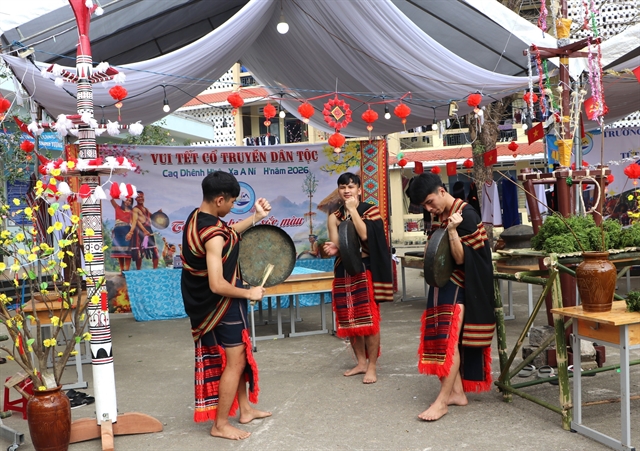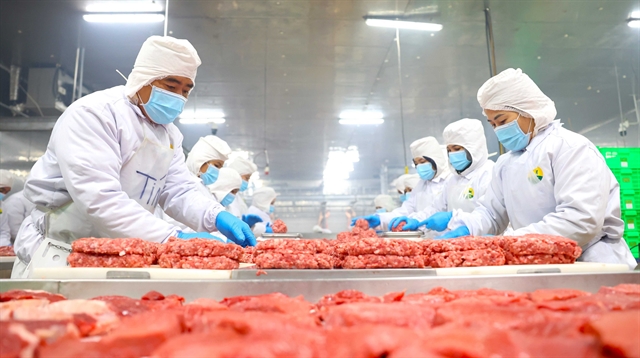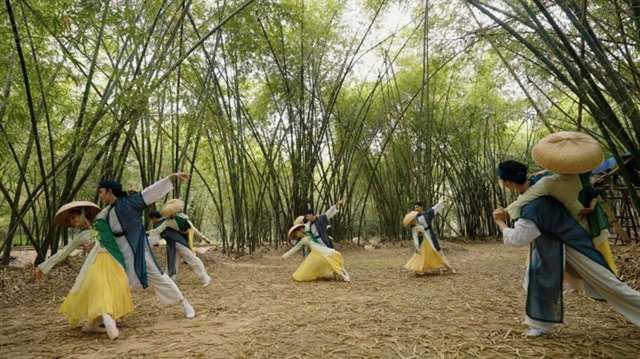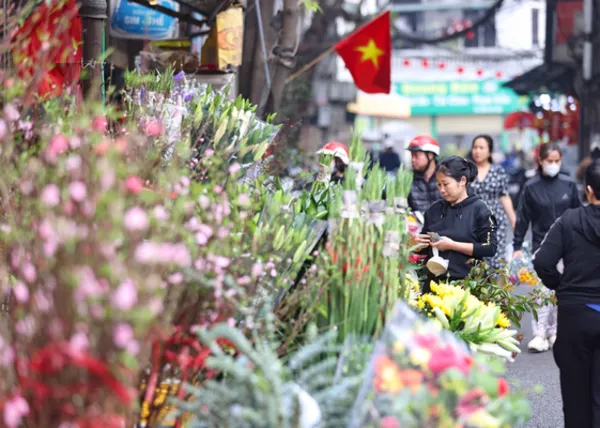 Society
Society

Two children were returned to their families in the Central Highland province of Đắk Lắk in April after a week of suffering from forced labour in HCM City.
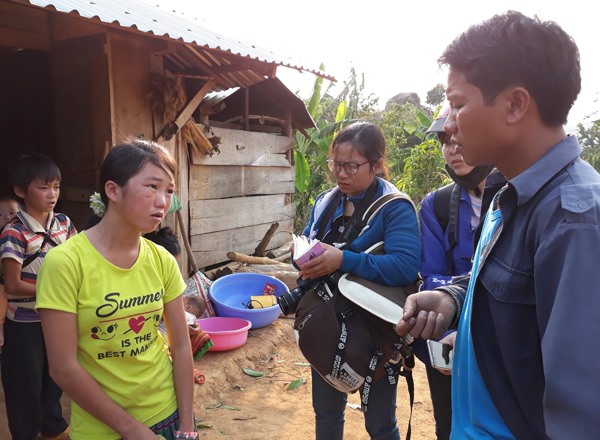 |
| A teenager in the Central Highlands province of Đắk Nông tells reporters about her experiences being forced to work and locked up in a textile manufacturing unit in HCM City. — Photo baogiaothong.vn |
HÀ NỘI — Two children were returned to their families in the Central Highland province of Đắk Lắk in April after a week of suffering from forced labour in HCM City.
Sùng A Sính, 11, and Thào A Dơ, 12, were taken to a textile manufacturer in HCM City by an acquaintance of their families on March 23. The man promised Sinh’s and Dơ’s parents that they would be doing “textile manufacturing jobs” and get paid VNĐ13 million (US$570) per year.
“He made the job sound so easy,” said Hoàng Thị Tống, Sinh’s mother. “Our family was going through a rough time, so I decided to let him take Sính away to find jobs.”
Once they arrived in the city, Sính and Dơ were forced to go begging on the streets and got beaten constantly. They ran away, but got lost until a civil defence official in Bình Thạnh District found them and took them to the People’s Committee of Phạm Văn Hai Commune for shelter.
The two teenagers were returned to their families on April 6. Sính was re-admitted to the Cư Pui 2 elementary school he had been attending, said Nguyễn Văn Tâm, chairman of the Cư Pui People’s Committee.
Taking advantage of their low education level and poverty, human traffickers often trick parents in Central Highland provinces into letting their children go to big cities to find jobs to support their families.
Twenty four teenagers aged 13-16 in Đắk Lắk Province’s Cư Pui Commune, and 18 teenagers aged 11-17 in Đắk Nông Province’s Quang Phú Commune were reported dropping out of school and going to work in HCM City and the southern Bình Dương, Đồng Nai provinces since the beginning of this year, according to Giao Thông (Transport) newspaper.
The jobs they got were never as good as promised. Thào Thị Gióng, 14, in Quang Phú Commune and her friends were told they would be doing textile manufacturing jobs, got paid VNĐ16-20 million ($710-890) per year and provided with accommodation, but that was not how it turned out exactly.
“We had to fold, package and transport heavy clothes manually from early morning until 11 pm,” Gióng said. “We also got locked up, were not allowed to go out, and got shouted at when asking to quit.”
Gióng, Sính and Dơ were lucky to have been found and returned to their families. The 13-year-old daughter of Lê Văn Tỏa in Đắk Lắk Province sometimes called him and said she was being forced to work “like a slave”, but he could not take her home because both of them did not know where she had been taken to.
Although child trafficking has been a pressing issue in the Central Highlands since 2014, local authorities were met with several obstacles when tackling the situation.
Châu Ru Ni, police chief of Quang Phú Commune, said that it is hard to get hold of the human traffickers since they always approached local residents directly with fake job posts and labour contracts without seeking the authorities’ permission.
The Central Highland provinces are ripe with immigrants from the northern region who spread sparingly across the area, said an official from Đắk Lắk Province’s Krông Bông District.
“It’s hard to manage them due to the differences in their customs and ways of living with the rest of the community,” he told Tuổi Trẻ (Youth) newspaper.
These people are often tricked into working not only in difference provinces but also abroad; some were sold to China, he added.
Apart from the authorities’ efforts, it requires participation from local humanitarian organisations and unions to raise awareness on human trafficking among the local communities, the police of Đắk Nông Province’s Krông Nô District told vov.vn. — VNS


